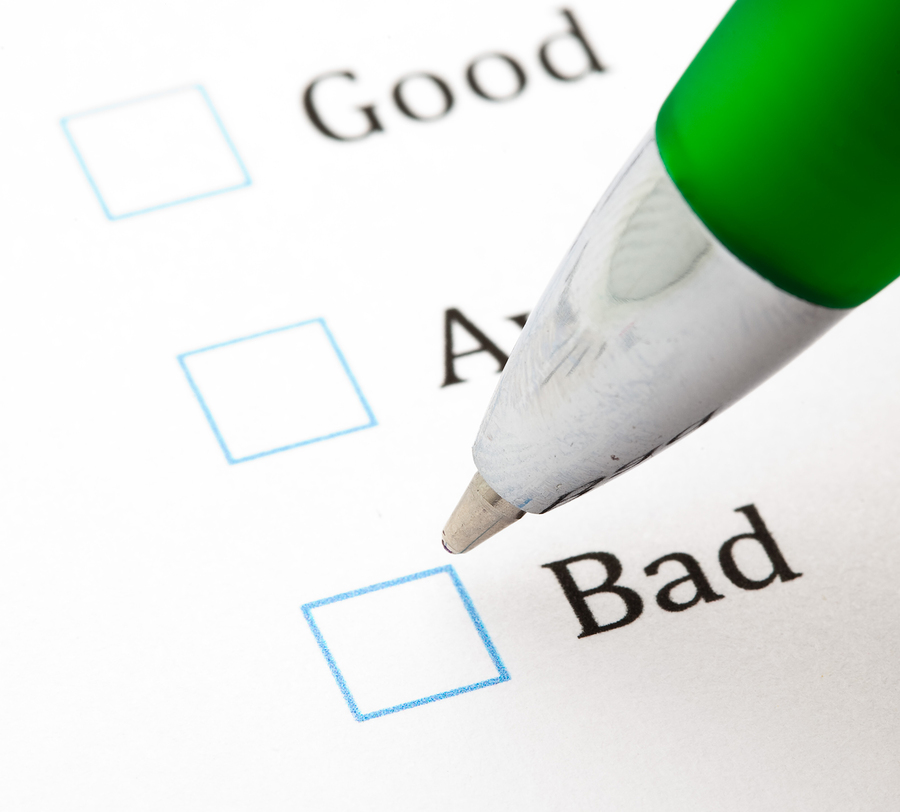To paraphrase a pretty good writer of several centuries ago, “Some are born writers, some learn to be writers, and others have writing thrust upon them.”
Whichever category you fit into, it takes practice and perseverance to write well. But it takes only a little effort to write poorly. Here are seven tips to help you write poorly:
- Write for everyone.
Don’t write for a specific demographic or a target audience. Don’t write with a specific reader in mind. Just write for anyone and everyone. Keep it general, broad, and one-size-fits-all.
- Don’t read your writing aloud.
Sure, every writing teacher I know sings the praises of reading one’s work aloud, as doing so exposes a plethora of mistakes and problems. But few writers actually do it. Be the few, the proud, the poor.
- Don’t invite critique.
Every writer has weaknesses; and if you find a person or a group of people who can give you capable, honest, and regular critique, they might help you discover and eliminate your weaknesses. But you probably don’t want that. It can be painful. So skip it.
- Don’t spell-check and proofread.
You know you didn’t make any mistakes. You know your article or chapter is perfect, as is. So just print out your masterpiece, and immediately submit it to a publisher. Why should the world have to wait any longer to benefit from your genius?
- Use passive verbs.
Sure, the second sentence below is much stronger than the first:
The house was buried in the snow. (Passive)
The snow buried the house. (Active)
But you can’t (and probably shouldn’t) make every verb active or vibrant, so use “is” and “was” a lot. That is fine.
- Use lots of adjectives and adverbs.
We all know that Strunk and White wrote in The Elements of Style, “In general, it is nouns and verbs, not their assistants, that give to good writing its toughness and color.” But what do they know? Why make your nouns and verbs do all the heavy lifting? Prop them up with redundant (“smiling happily”), superfluous (“the furry cat”), and flowery (“beautifully striking flouncy azure dress”) words. This is good, top-notch, poor writing.
- Use plenty of clichés, platitudes, qualifiers, jargon, and overdone words.
Like “white as snow” (cliché). And “God works all things for the good” (yes, I know it’s in the Bible; but we’ve not only abbreviated it but have turned it into a platitude). Like rather, very, pretty, really, and little (qualifiers). Or anointed and fellowshipping (jargon). And impacted, awesome, and epic (overdone words). Sprinkle your writing with these, and you’re sure to write pretty poorly, and the results could be epic.
See how easy it is? Not that anyone can do it; it takes practice and perseverance. But I believe in you. I really, really do.





A lot of this hit home as things I’m trying to see and not do. Still, I do a lot of it. I always have spell-check on. The same with passivity. Yet, my raw writing is passive. However, the use of clichés, adverbs (and sometimes excessive adjectives) become noticeable as I write them. Then I remove them.
Still, writing’s a pain. I enjoy the creativity part, but getting it correct is difficult.
Writing is an exquisite pain.
Bob, not sure you even know how right on you are.
#6 is the only one I kinda sorta in a way do not follow… I stamp out most adjectives and adverbs that are ugly. Some, I need. I swear! hahahahahahaha…
And to THINK that yesterday I thought, hmm, before I send you my query perhaps I should PM you on FB and ask about hiring an editor first for economic reasons I won’t go into… oh, I just did.
I’ll be honest. Cannot fathom following a book that was originally published like… 1919 and updated in the 1940s. As I peruse Strunk & White, in my other hand, I look at Spunk and Bite.
Then, oh, my there is the CMS and I want to toss my lunch over the 14 (fourteen!!) pages on comma use.
Don’t even look at my errors, here. I don’t edit my notes.
I smiled wryly as the nail was hit on the head by this very clever, helpful, amusing post. Now I will be striving to make my writing clean as a whistle so it hits the mark.
Thank you.
That was epic.
I should’ve said, “epically epic.”
(Eye roll). That was pretty awesome!
Many good reverse tips here. Reminds me of CGP Grey’s classic youtube video “7 Ways to Maximize Misery.”
Just one question – how does one read aloud without the family trying to institutionalize you? Asking for a friend.
Ok, I’m the friend.
Friend,
Closets. Bathrooms. Basements. Sheds.
On the other hand, institutionalization supplies its own opportunities…
???
The church was buried by a blossom
of the snow (’twas white as snow!)
and it was gnarly, dude, and awsome
that fellowshipping we would still go.
We are anointed, rather righteous,
smiling happily at furry cats
dressed in beautifully striking flounces
like demimonde aristocrats.
We travel light, we’re on a mission
but all that glitters is not gold,
and the result of our ambition
only time will have told.
And sure as sunup starts the day
I’ll invent a new cliche.
That was awesomely awesome, dude. Like water to a drowning man.
As you wrote of Polonius, you are a “hoot.” And I like it. I really, really do.
Actually, the quote at top wasn’t Polonius, but Malvolio. Is that what you meant?
Wait. I think I got it backwards.
Okay: undo, undo, undo . . . .
Re #6: I am reminded of Charlie Shedd’s admonition (“If I Can Write, You Can Write”) that use of an adjective suggests that you may not have used the right noun (e.g. tall building vs skyscraper) and use of an adverb hints that you may not have used the right verb (e.g., ran fast vs raced).
I needed this. I’ve been so focused on writing well that I forgot to look back on the importance of writing poorly. Much Thanks!
I’m reading this blog just before I begin my fourth proofread. Amazing what you miss, even after checking it twice plus one. I’m on the hunt for everything from superfluous, redundancy, cliches, platitudes to adverbs, adjectives, and my nemesis, passive verbs. They should have been banished (oops!) by now, but they are elusive critters. Thanks, Bob.
Brilliant advice for writers who think rules are meant to be broken. Now I can break all the rules I like and become a better writer!
P.S. Thanks for the reverse psychology!
Just to be clear, I found great value in this post precisely because of the reverse psychology aspect. It was a fresh, humorous and insightful way to explore the topic, hence my own tongue-in-cheek approach of showing appreciation.
Thanks for believing in us, Bob. We really, really appreciate that. Hopefully it won’t be disregarded like water off a duck’s back. I mean, c’mon, dude, let’s all get with it. (chuckles)
On a vacation in the Great Smoky Mountains with no internet, I realized I missed this daily exchange like I miss a friend. I missed the advice, wit, comeraderie, and questions, and I missed Andrew’s sonnets.
I work as a research/writing coach and editor for other writers, and yet I find examples of following your rules for bad writing every time I reread something I’VE written. Even editors need editors. Writing is work that is never done, isn’t it? Thanks, Bob, for the reminders.
Hilarious! Thank you 🙂
This was way super awesome.
Certain sentences and ideas work better read aloud than they do flat on paper. Example: “Of course,” he said, and I could hear the smile on his face, even with his back turned.
That example above works much better when being read aloud. Try it out for yourself. Smile really big while recording yourself saying, “Of course.” It makes more sense after you hear it. When I read a version of the above sentence for the audiobook for my next novel, I realized it worked much better in the audiobook than on text, and was mildly disappointed I hadn’t chosen a better descriptor for the text. Point being: reading out loud is very helpful.
I have to quibble a tiiiiiiny bit, though, on the passive/active voicing tip. Slavish active voicing can, on occasions, actually be overly restrictive and result in less-than-fantastic writing (though it’s a great general rule of thumb). If you’re wanting to communicate the helplessness of the house, you would use the passive voicing. If doing so achieves your intended goal, that can be better, in the end. You have to know what you’re trying to achieve, and the best way of achieving it. In general, readers are just savvy enough to know when you break a “rule of writing,” but not savvy enough to realize you did it to good effect. So… good to avoid breaking them. Unless you really know what you’re doing.
Brennan,
I agree with ‘some’ of the passive, the sentences may not work (especially in dialogue, IMHO). Extra/redundant/overused words I stamp out like a fire.
That said, my quibbly-ness are those pesky adverbs (see what I did there?). Again, in dialogue, but also description/setup, as long as not purple prose which is the death of a book, MS, etc.
AWESOME – AND BRILLIANT!!!!
…BY DELIVERING THE ARTICLE WITH A NEGATIVE APPROACH, A SUREFIRE WAY TO CATCH ATTENTION – WAKE UP PEOPLE!
EXCELLENT ARTICLE – THANK YOU FOR SHARING…